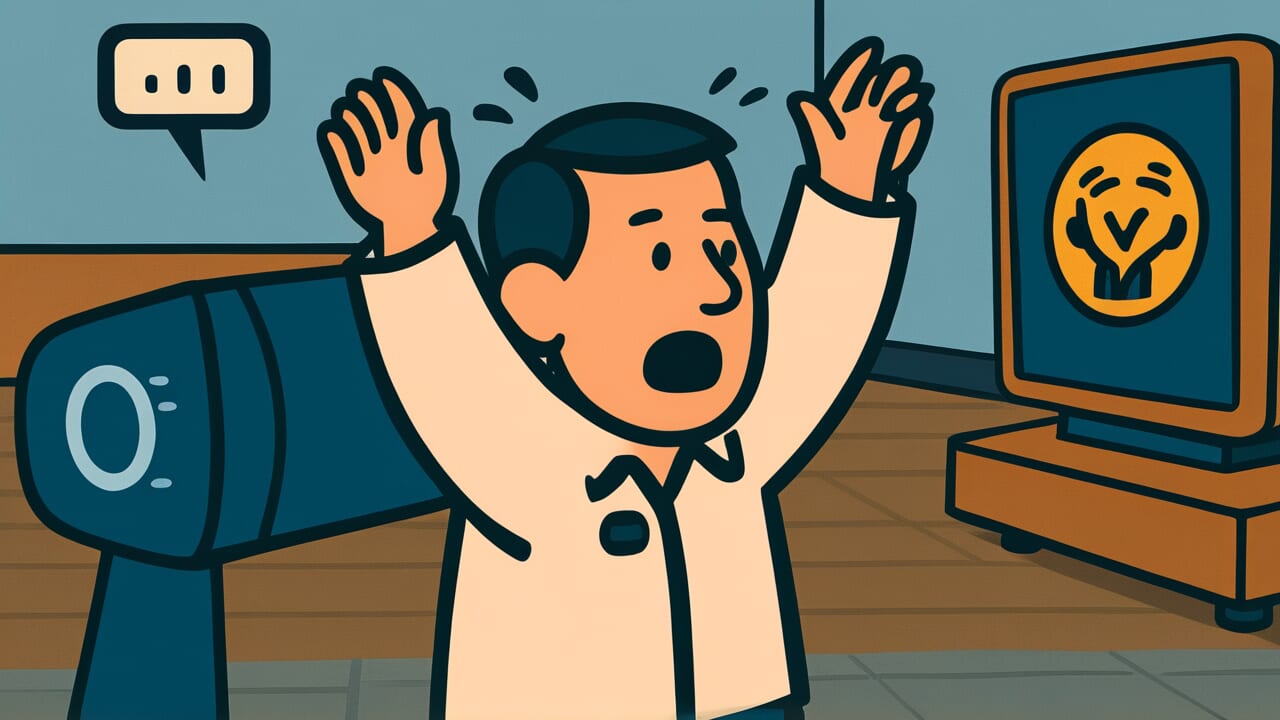How to Read “A loud voice does not enter the ear”
Taisei ri mimi ni irazu
Meaning of “A loud voice does not enter the ear”
This proverb means that in places filled with loud voices and noise, quiet sounds and important messages become impossible to hear.
It applies not just to actual sound problems but also to figurative situations.
For example, when many people shout their opinions at once in a meeting, truly important suggestions get buried.
Or in modern society overflowing with information, essential messages get lost in the noise.
The proverb is used to describe such situations.
People use this saying because it emphasizes the loss that comes from noise, not just that something is “loud.”
It contains a warning that volume and quantity don’t always bring good results.
Today we see the problems this proverb describes everywhere. Social media controversies and situations where only the loudest voices get attention are perfect examples.
Origin and Etymology
No clear written records explain the origin of this proverb. However, we can make interesting observations from how the words are structured.
Let’s look at the expression “taisei ri” (loud voice village).
“Ri” has traditionally meant a settlement where people gather to live.
So “taisei ri” refers to a lively place where many people gather and various voices fly about.
You can picture scenes like markets, festivals, or public squares where people congregate.
People have lived in groups since ancient times. In such places, many voices always overlapped.
Merchants calling out, children playing, conversations at the well. In such commotion, small voices and important words became hard to hear.
This lesson likely arose from this everyday experience.
The saying also contains acoustic truth. In environments filled with loud sounds, human hearing loses its ability to distinguish quiet sounds.
Our ancestors understood this phenomenon through experience, even without scientific knowledge.
They passed it down as a proverb to future generations.
It’s a crystallization of wisdom that simply expresses the difficulty of communication in noisy environments.
Usage Examples
- The meeting room was in a state of “a loud voice does not enter the ear,” so in the end nobody’s opinion got through
- I left the TV on and it became “a loud voice does not enter the ear,” so I didn’t notice my mother calling me at all
Universal Wisdom
“A loud voice does not enter the ear” points to a fundamental contradiction in human society.
It’s the paradox that the more voices gather, the harder individual voices become to hear.
Everyone wants their voice to be heard. That’s why people speak louder and try to assert themselves more strongly.
But if everyone raises their voice the same way, nobody’s voice reaches anyone in the end.
Our ancestors sharply perceived this sad reality.
This wisdom has been passed down for so long because we cannot escape this problem as long as humans live in groups.
The same phenomenon repeats in village gatherings, modern conference rooms, and internet discussions.
The emptiness of competing over volume, and the danger of losing sight of what truly matters.
Thinking more deeply, this proverb teaches “the value of silence.”
Nothing can be heard in the midst of noise. That’s why we sometimes need to create quiet environments.
To listen carefully, we must first reduce the noise.
Humanity has known this simple truth for thousands of years, yet we still cannot practice it today.
When AI Hears This
When sound pressure levels exceed 85 decibels, the human ear automatically enters defense mode in the cochlea, an inner ear organ.
This physiological phenomenon is called auditory fatigue. It’s a mechanism that lowers sensitivity to protect delicate hair cells from excessively loud sounds.
In other words, loud voices physically become “harder to hear.”
What’s interesting is the contrast with the cocktail party effect.
Even in a noisy party venue, we can selectively hear specific people’s voices.
This happens because a brain region called the superior olivary nucleus instantly analyzes frequency and sound source location information to extract only necessary sounds.
But when voices become too loud, this precise selection system stops functioning properly.
Why? When sound pressure is too high, the frequency band spreads too wide, and the brain cannot identify the sound source.
For example, normal conversation mainly ranges from 500 to 3000 hertz. But shouting spreads from 100 to 8000 hertz.
Then the brain doesn’t know “where to focus,” and information processing cannot keep up.
Furthermore, the amygdala, which governs emotions, reacts excessively and stress hormones are secreted.
This suppresses the language comprehension function of the prefrontal cortex, creating a state where “content literally doesn’t enter the head.”
Physiologically, loud voices are sounds that reduce information transmission efficiency.
Lessons for Today
What this proverb teaches modern people is the importance of “the courage to create silence.”
We live in an age of information overload.
Social media timelines update endlessly, news flows 24 hours a day, and notification sounds never stop.
Modern society as a whole has become a “loud voice village.”
To hear what truly matters in this environment, we need to consciously create silence.
Specifically, this means having time to block out information.
Turn off smartphone notifications, secure time to think quietly alone, or set moments of silence before everyone speaks in meetings.
These small practices restore our ability to hear important voices.
It’s also important to reflect on whether you yourself are producing “loud voices.”
We tend to think raising our voice will get attention. But that also drowns out other people’s voices.
Sometimes speaking quietly actually reaches people’s hearts better.
What gets lost in the noise isn’t just other people’s voices. You also stop hearing your own inner voice.
By valuing silence, you can live without losing sight of what truly matters.



Comments